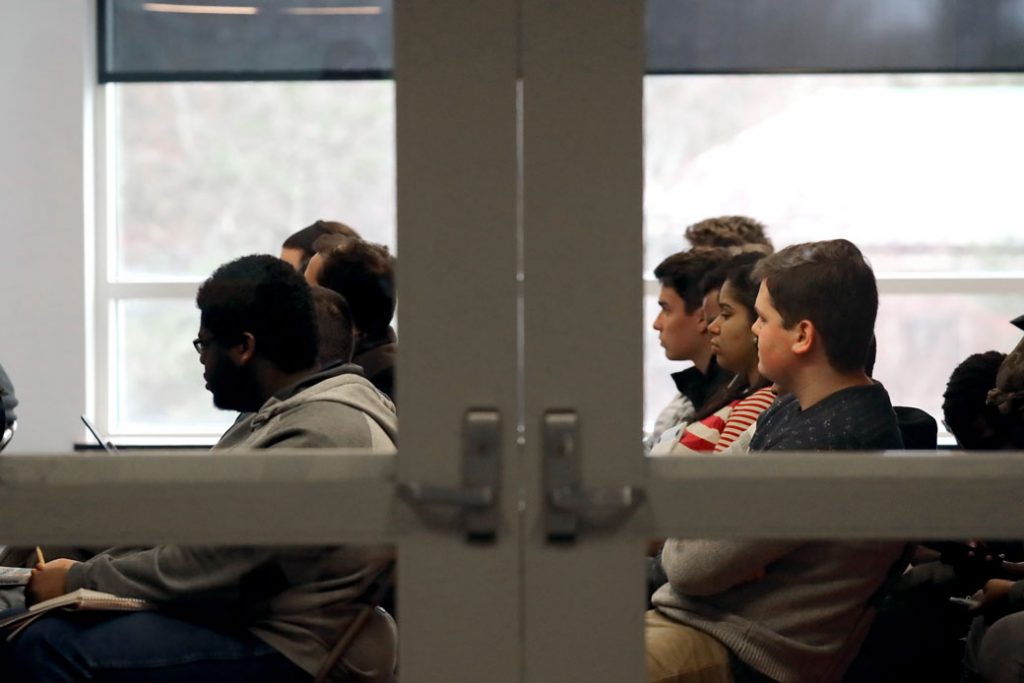
Rep Chuy Garcia: The Diversify Act would increase BIPOC representation among teachers
There is a significant shortage of BIPOC teachers in schools across America.
College graduations among BIPOC individuals are lower than white people, and while the number is gradually improving, the opportunity to become an educator is slimmer for these aspiring teachers than it is for their white counterparts.
The lack of teacher diversity in education has been an issue for decades. After the U.S. Census Bureau reported in 2018 that 49.7% of all American children 0-17 years old were nonwhite, the situation became more dire. Most students today will go through public school education without being taught by a Black teacher.
A majority of public school students are BIPOC, but only 20% of all teachers are people of color, which can have several negative impacts on a student's educational experience, ranging from successful graduation to self-perception.
It’s one of the reasons why there has been a rise in homeschooling among Black families who want their children to have a balanced education, without excluding diverse voices from throughout history. It’s also a way to protect their children from systemic, institutional racism and enduring stereotypes.
A 2017 study published by the Institute of Labor Economics found that among low-income Black male elementary school students, exposure to at least one Black teacher in grades 3-5 “significantly reduced” the probability of dropping out, by 39%.
The study also found that pairing Black teachers with Black students of both sexes between grades three to five increased their willingness to attend college by 19%. Overall, Black students who have at least one Black teacher in elementary school are 13% more likely to enroll in college than those who don't.
High cost of college, the steady increase of fees, and student debt are barriers to prospective teachers, but for BIPOC students these barriers are higher.
It’s one reason why Rep. Jesús “Chuy” Garcia is reintroducing the Diversify Act, a bill that will help support the education system for these students by increasing the maximum TEACH Grant award from $4,000 to $8,000 per year to align with the inflated cost of higher education today. Garcia is reintroducing the bill in the House, and Senator Cory Booker in the Senate.
It is co-sponsored by several BIPOC congress members, including Reps. Ruben Gallego, Nydia Velázquez, Ayanna Pressley, Salud Carbajal, Cori Bush, Ritchie Torres, Raúl Grijalva, Rashida Tlaib, Ro Khanna, and Alexandria Ocasio-Cortez.
The Teach Grant program was created in the bipartisan College Cost Reduction and Access Act of 2007. It provides $4,000 scholarships to undergraduate and graduate students who commit to teaching a high-need subject in a high-poverty elementary secondary school for four years.
But because of the rising cost of college and student loan debt, many people of color are deterred from teaching and leaving many students in underserved communities without diverse teachers. The average cost of college at a four-year institution currently exceeds $20,000 a year.
RELATED CONTENT
Rep. Garcia says this disparity is reflected among his own constituents in Chicago.
“Students deserve to see their own diversity reflected in those who teach them. In Chicago, however, less than 50% of teachers come from diverse backgrounds while students of color make up nearly 90% of the student population,” he wrote in a statement.
En Chicago, menos del 50 por ciento de maestros provienen de contextos diversos mientras que alumnos de color representan casi el 90 por ciento de la población estudiantil. #DIVERSIFYAct
— Congressman Chuy García (@RepChuyGarcia) May 21, 2021
El #DIVERSIFYAct abordará esta discrepancia al fortalecer programas de becas destinados a reclutar una fuerza laboral educativa diversa.
— Congressman Chuy García (@RepChuyGarcia) May 21, 2021
According to his office, the Diversify Act will do the following:
Increasing the maximum TEACH Grant award to $8,000 per year to align with the full cost of college today – which exceeds $20,000 a year.
Protecting the TEACH Grant award from being cut by the Budget Control Act which this year alone resulted in a decrease to the maximum award of nearly $250.
Eliminating the loan conversion penalty
Allowing the TEACH Grant program to cover the full cost of attendance, rather than just tuition, fees, and on campus housing
Requiring the Secretary of Education to send TEACH Grant recipients who have completed their service an electronic certification











LEAVE A COMMENT: